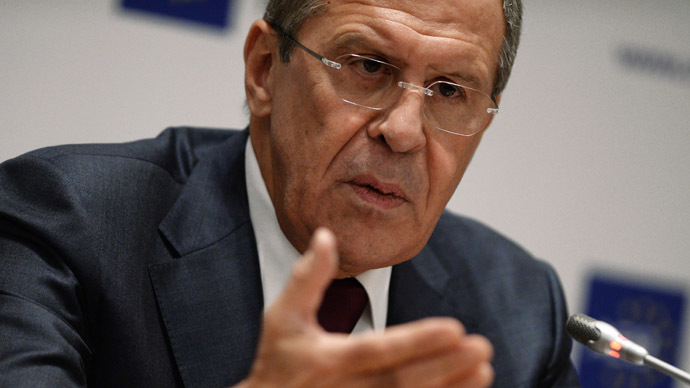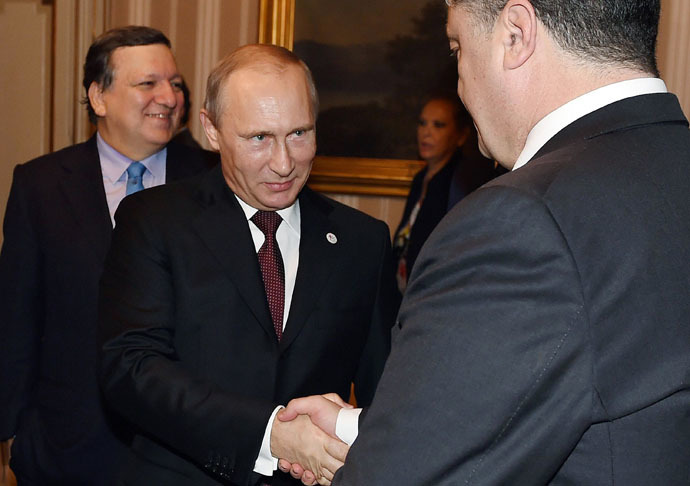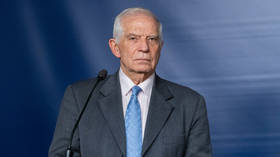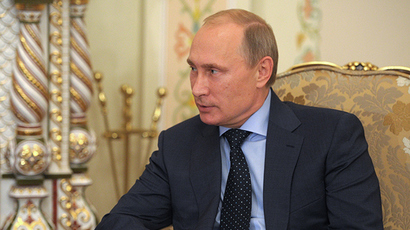Lavrov: West’s ‘colonial-style’ sanctions on Russia have little to do with Ukraine

Making Russia change its stance by way of sanctions is outdated thinking in an age when diversity of opinion is supposed to be appreciated, Foreign Minister Lavrov believes. He says Russia is already “doing more than anybody else” to help Ukraine.
‘Difficult, full of disagreements’: No breakthrough in Milan talks on Ukraine crisis
Moscow can hardly be accused of non-facilitating the
peace-process in Ukraine, as it is exerting all of the authority
it can on the anti-government forces in eastern Ukraine to make
sure they comply with the September Minsk peace agreements, Sergey Lavrov said in his Sunday
interview to the Russian NTV channel. It’s the West, according to
him, who could actually do more to resolve the Ukrainian crisis.
“Our Western partners… aren’t really using their influence on
Kiev to persuade them that there’s no alternative to the
agreements they’ve already reached with the self-defense,”
the minister said.
The West is meanwhile ever ready to put additional pressure on
Moscow in the form of sanctions, which in Lavrov’s point of view
have little to do with the situation in Ukraine.

“You can essentially feel in their statements and actions the true goal of restrictions – to alter Russia, to change its position on key issues, the most fundamental for us, and make us accept the vision of the West. That is last-century, past-epoch, colonialist thinking.”
Putin: Russia’s isolation is ‘absurd & illusory goal’
Whatever economic difficulties the sanctions entail, they are
unlikely to divert Russia from its current stance, Lavrov
believes.
Lavrov acknowledged current Russia-US relations are
“difficult” and has accused Washington of only thinking
of American interests when offering solutions to political
problems. The Russian foreign minister would like to see more
balance in proposals coming from the US.
“This is a common thing for the US – a consumerist approach
to international relations. They believe that they have the right
to punish the countries that act contrary to Washington’s vision,
while demanding cooperation in other issues vital for the US and
its allies.”
Balance on the international arena could have come from the EU,
if it was more independent from Washington in its decision
making, according to Lavrov.
“The EU with all of its current Washington leaning has the
potential to act independently. This, however, remains almost
totally unused. That’s sad, because the EU’s own voice could have
added balance to international discussions and efforts to solve
various problems.”
Milan talks on #Ukraine ‘difficult, full of disagreements’ – Kremlin spokesman http://t.co/LrIoTrZ8hBpic.twitter.com/cAyZbJQv9D
— RT (@RT_com) October 17, 2014
Friday’s talks between Russia and Ukraine in Milan which were mediated by the EU, proved “difficult and full of disagreements,” according to the Kremlin.
The German Chancellor Angela Merkel said “no breakthrough” was achieved.
One of the most essential issues the parties disagree on is gas supply. Kiev owes billions of dollars to Gazprom. There have been fears that the crisis-struck country won’t be able to pay, which could possibly lead to disruptions of gas supplies, including those to Europe via Ukraine.
The Milan negotiations have resulted in some progress on the
issue - an agreement for winter supplies was reached, according
to the Russian president. A new round of talks has been scheduled
for October 21 and the EU will once again mediate the process.
Ukraine might meanwhile soon find itself forced to conduct
similar negotiations with Poland. On Thursday, the country’s
Deputy Prime Minister Janusz Pehochinsky expressed disappointment
that Ukraine hasn’t yet paid for 100,000 tons of Polish
coal.














